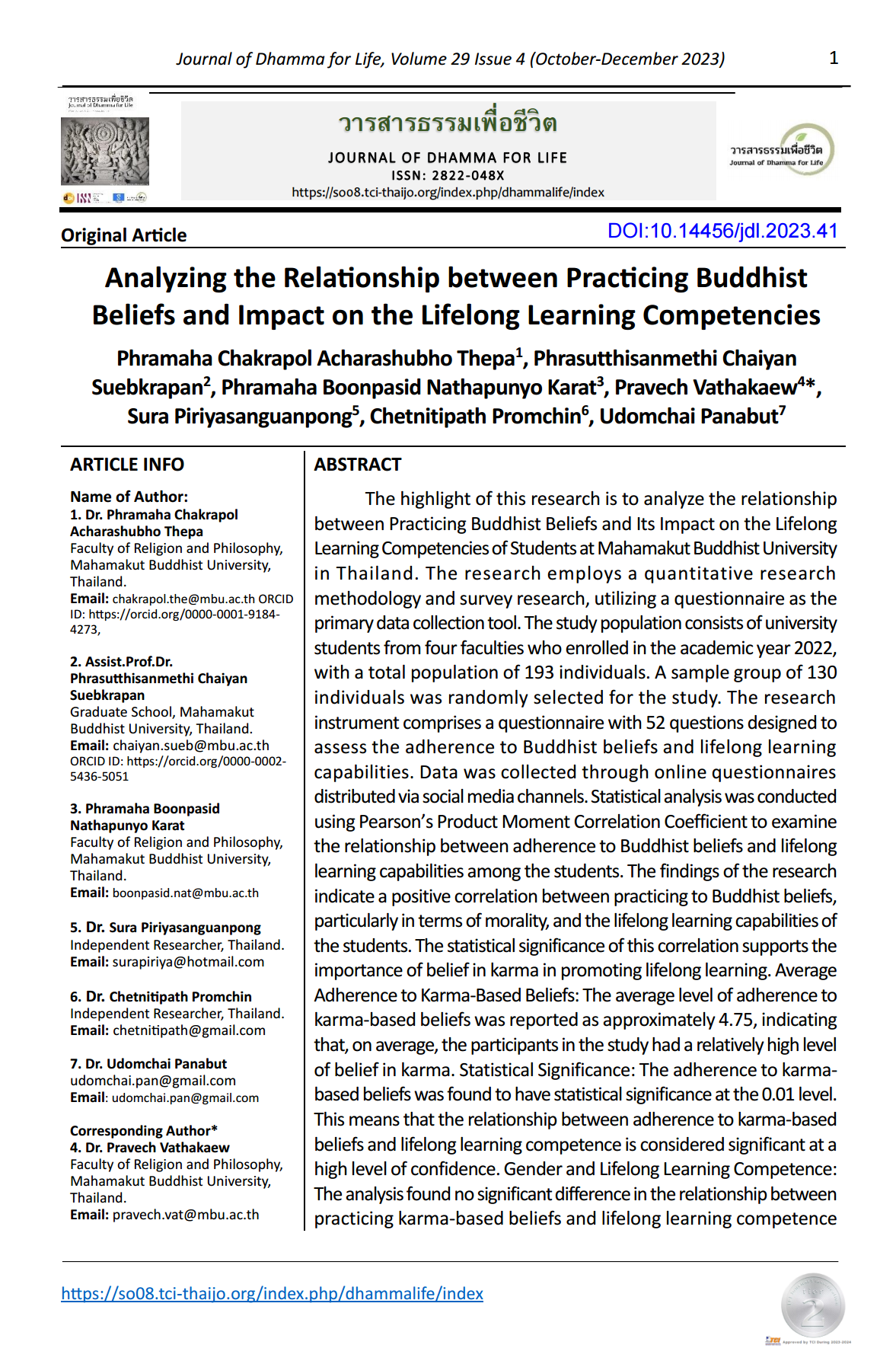Analyzing the Relationship between Practicing Buddhist Beliefs and Impact on the Lifelong Learning Competencies
Main Article Content
Abstract
The highlight of this research is to analyze the relationship between Practicing Buddhist Beliefs and Its Impact on the Lifelong Learning Competencies of Students at Mahamakut Buddhist University in Thailand. The research employs a quantitative research methodology and survey research, utilizing a questionnaire as the primary data collection tool. The study population consists of university students from four faculties who enrolled in the academic year 2022, with a total population of 193 individuals. A sample group of 130 individuals was randomly selected for the study. The research instrument comprises a questionnaire with 52 questions designed to assess the adherence to Buddhist beliefs and lifelong learning capabilities. Data was collected through online questionnaires distributed via social media channels. Statistical analysis was conducted using Pearson’s Product Moment Correlation Coefficient to examine the relationship between adherence to Buddhist beliefs and lifelong learning capabilities among the students. The findings of the research indicate a positive correlation between practicing to Buddhist beliefs, particularly in terms of morality, and the lifelong learning capabilities of the students. The statistical significance of this correlation supports the importance of belief in karma in promoting lifelong learning. Average Adherence to Karma-Based Beliefs: The average level of adherence to karma-based beliefs was reported as approximately 4.75, indicating that, on average, the participants in the study had a relatively high level of belief in karma. Statistical Significance: The adherence to karma-based beliefs was found to have statistical significance at the 0.01 level. This means that the relationship between adherence to karma-based beliefs and lifelong learning competence is considered significant at a high level of confidence. Gender and Lifelong Learning Competence: The analysis found no significant difference in the relationship between practicing karma-based beliefs and lifelong learning competence between males and females. This implies that the impact of karma-based beliefs on lifelong learning competence is similar for both genders. Correlation Analysis: A Pearson's correlation analysis was conducted, revealing a strong and statistically significant positive correlation between practicing karma-based beliefs, particularly in Kammatthana, and lifelong learning competence, especially in entrepreneurial and initiative skills. The correlation coefficient of 0.754 suggests a strong positive relationship between these variables, and the p-value below 0.01 indicates that this correlation is statistically significant. The research concludes that there is a strong relationship between practicing Buddhist beliefs, particularly those related to karma, and preparedness for lifelong learning. It emphasizes the importance of belief in karma as a factor that promotes learning, especially in areas related to entrepreneurial and initiative skills.


